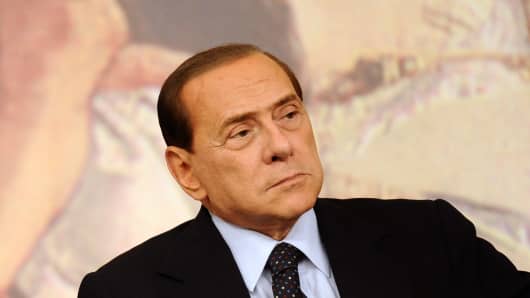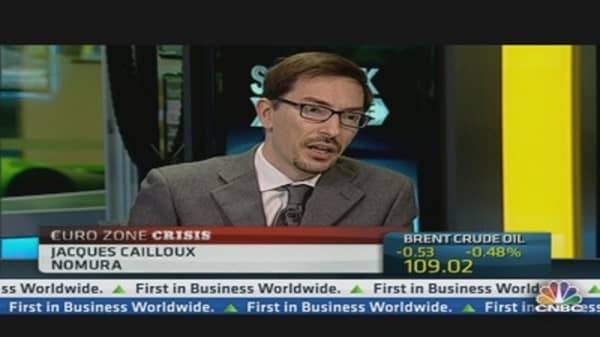As former prime minister, Silvio Berlusconi threatened to withdraw crucial support for the country's technocrat government — a move that could result in early elections — economists are questioning whether he could destabilize the country's economic reforms.
The influential billionaire businessman and politician could destabilize Italian politics after he threatened to withdraw support for the government of Mario Monti on Saturday.
That followed his sentence to one year in prison for a multimillion-euro tax fraud on Friday. But the seventy-six-year-old is unlikely to serve time in prison due to his age and will appeal against the verdict.
Meanwhile, thousands of protestors held a "No Monti Day" in Rome to oppose the government's austerity drive through structural reforms. A voter turnout of less than 50 percent in regional elections in Sicily signaled an increasingly uncertain political future, as public confidence in the government and its reforms has waned.
"It's very important to re-focus our attention on the political dynamics in Italy that have been in the background over the last year," Jacques Cailloux, chief European economist at Nomura, told CNBC. "It's a very difficult situation there — the Italian economy is weakening very rapidly and Italian unemployment is rising relatively rapidly."
"The markets went into Italy with hope that with Monti taking over this would bring political stability … there were hopes that Monti could stay on, but he only has support from some parties that are not representative of the whole dynamics of Italian politics." Cailloux told CNBC Europe's "Squawk Box.""The critical point [is whether the current government stays in power],"
He added: "If you think about Italy embarking on three to four years of structural reform and over that time you have political instability and a government that falls and the market turns against Italy, all those years of reforms will be wiped out by market confidence being lost."
In a sign the weekend's events could shake market confidence, the Italian 10-year government bond yield rose five basis points on Monday to 4.89 percent, ahead of a bond auction in which Italy hopes to sell 8 billion euros ($10 billion) of six-month bills. Yields have fallen more than 200 basis points from the highs of 7 percent when Monti took over 11 months ago.
(Read More: Berlusconi Threatens to Bring Down Monti Government)
Berlusconi criticized Mario Monti and blamed him for producing a "continuation of a spiral of recession." But the billionaire and former politician has said recently he will not run for government in the 2013 elections.
Cailloux said that market uncertainty would be fueled by the lack of credible alternatives to a Monti government.
"There is no alternative. If the political outcome in Italy over the next 6 months goes against the pro-reform agenda that Monti has been working on, clearly this will make markets re-assess the risk premium on Italy," he said.
Giada Gianni, European economist at Citigroup, said that political instability showed markets that Italy "is not as stable and strong as people were thinking" and the next few months were uncertain.
"The main risks in the short-term are still mainly political. Yes, the economic fundamentals are weak but what will make the headlines is any political turmoil over the next few months," Gianni said. "You would expect nothing major before the elections but there are very large disagreements over reforms and the austerity drive."
Prime Minister Monti is facing resistance from parliament over his 2013 budget proposals, which include cutting income-tax deductions and raising value-added tax.
As for a Berlusconi-led verdict on the Monti government, no date has been set.
—By CNBC's Holly Ellyatt





